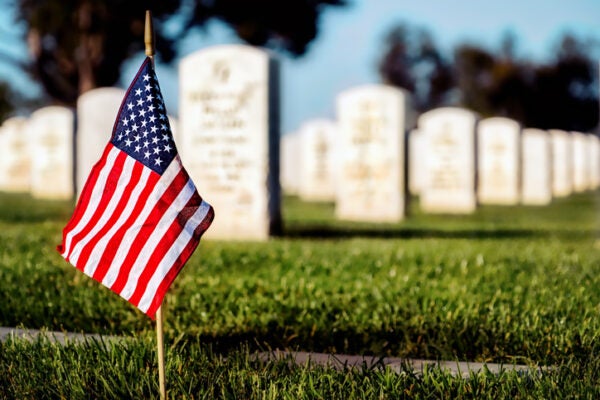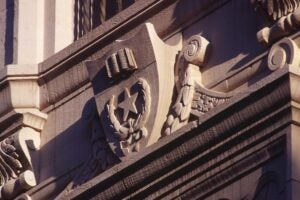Another Veterans Day is upon us. A day in which we honor those who have served in American armed forces, both citizens and aspiring citizens, many of whom died or had their lives radically transformed, forever obeying the decisions of our Congress or the orders of our commanders in chief.
On All Saints’ Day at the altar of Calvary Church in Bastrop, Texas, my wife Lisa and I placed photographs of the departed saints within our family. We paged through scrapbooks of clippings that my mother, like other women back home during World War II, put together at the urging of our armed services.
A black-and-white photograph taken in 1942 shows my Uncle Joey, 18 years old, freshly back from U.S. Marine Corps training on Parris Island, and my father Michael, 26 years old, in his 1st Cavalry uniform. Joey was then my mother’s “kid brother.” Michael would be her husband for 57 years. None of them could know what lay in store in the Pacific theater.
One browning newspaper image in Joey’s scrapbook shows piles of enemy corpses being bulldozed by U.S. Marines into a mass grave on the island of Iwo Jima. Over 20,000 Japanese soldiers fought to the death there in obedience to their divine emperor. They were mostly new young recruits, Joey’s age or younger. Almost 7,000 American service members were killed and over 19,000 wounded. Joey was one of the wounded. He came back psychologically broken. He died at the age of 24 in 1948.
We celebrate such sacrifices. It is righteous and proper to do so. But as years go by and there is no end to sacrifices demanded and sacrifices made, we should ask on Veterans Day: What does this all mean?
Another departed “saint,” my friend Charles “Chuck” Patterson, fought as a Marine Corps officer in the siege of Khe Sanh in 1968. He explored ever after the suffering of American and Vietnamese combatants by writing poems. I asked him once if he could explain to my students what it all meant.
In 2014, 46 years after Khe Sanh, Chuck wrote: “For the first time I think that I have begun to understand what I have written about. Every war is a tragedy for everyone. There are no winners or losers, there is no good, no evil. There is just sudden death or injury on both sides. One moment a man is alive the next he’s a corpse regardless of whose army he is fighting in or even if he is fighting, or if a civilian steps on a forgotten mine ten years later. We fought for no better reason than we were there and had to do it.”
On Veterans Day, take time to read and hear and think about the speech John F. Kennedy delivered at American University 60 years ago. In it, our martyred president talks about “a topic on which ignorance too often abounds and the truth is too rarely perceived — yet it is the most important topic on Earth: world peace.”
JFK said, “I am talking about genuine peace, the kind of peace that makes life on Earth worth living, the kind that enables men and nations to grow and to hope and to build a better life for their children — not merely peace for Americans but peace for all men and women — not merely peace in our time but peace for all time.” Kennedy knowledgeably asserts that war is a human problem and that history has shown that “[n]o problem of human destiny is beyond human beings.”
This Veterans Day, we owe it to all service members, past, present and future, to start becoming problem-solvers.
Tom Palaima is the Robert M. Armstrong Centennial Professor of Classics at The University of Texas at Austin and a member of the American Academy of Arts and Sciences.
A version of this op-ed appeared in the Austin American-Statesman, Waco Tribune Herald and the San Antonio Express-News.




